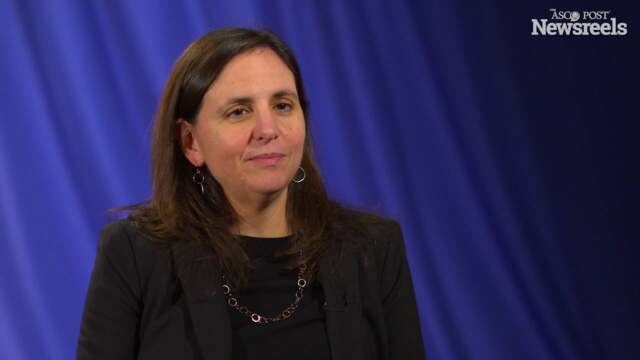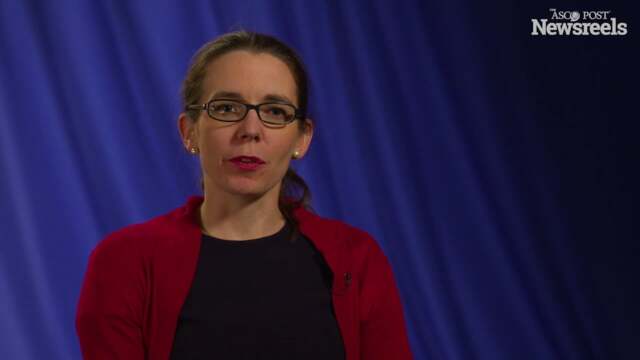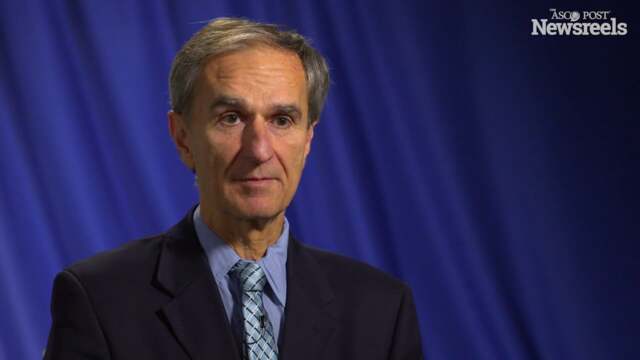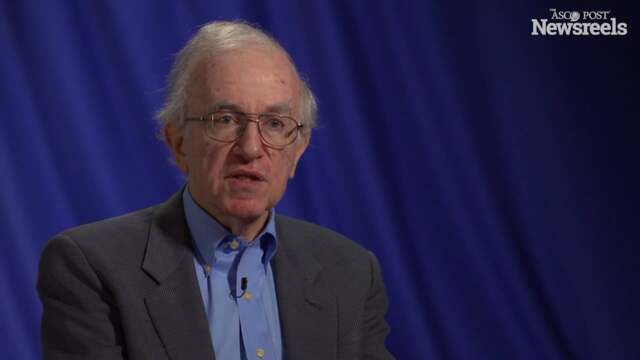Judith Vick, MD Candidate, and Rachelle E. Bernacki, MD, on A New Clinical Tool: The “Surprise Question”
2015 Palliative Care in Oncology Symposium
Judith Vick, MD Candidate, of Johns Hopkins University School of Medicine, and Rachelle E. Bernacki, MD, of Dana-Farber Cancer Institute, discuss a tool that could help clinicians identify seriously ill patients who would benefit from conversations about their goals and values (Abstract 8).
Jennifer S. Temel, MD
As Steering Committee Chair of this year’s symposium, Jennifer S. Temel, MD, of Massachusetts General Hospital, discusses the goals and highlights of the meeting.
Diane Portman, MD
Diane Portman, MD, of Moffitt Cancer Center, discusses clinical pathways that embed palliative care along the spectrum of care for a variety of cancer disease states.
Amelie Harle, MD
Amelie Harle, MD, of the Christie NHS Foundation Trust, discusses a clinical trial––the first of its kind—designed to assess the efficacy of an antitussive in patients with lung cancer (Abstract 2).
Eduardo Bruera, MD
Eduardo Bruera, MD, of The University of Texas MD Anderson Cancer Center, discusses exciting developments in the assessment and management of cachexia, as well as a number of emerging pharmacologic and nonpharmacologic interventions (Abstract 67).
Lawrence H. Einhorn, MD
Lawrence H. Einhorn, MD, of Indiana University Simon Cancer Center, discusses the ways in which a dedicated palliative radiation consult service can improve the quality of palliative cancer care (Abstract 110).





